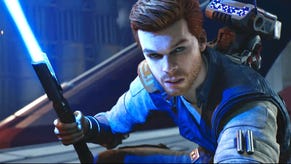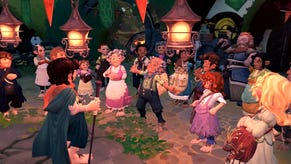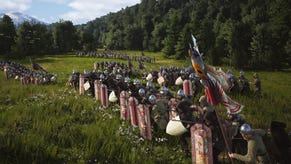Newell explains why there are no managers at Valve
Boss-free environment feeds creativity.
Among the more interesting tidbits thrown up by the Valve employee handbook leaked earlier this month was the revelation that there are no traditional managers in the company hierarchy, nor any real 'bosses'.
While it might sound like nirvana for some, many questioned whether it would actually work in practice.
Speaking in an interview with Bloomberg, Valve president Gabe Newell explained the thinking behind the studio's unique structure, reasoning that layers of management can impede creativity and dynamism.
"I was at Microsoft for 13 years and one of the things I did was go out and talk to customers," he said.
"I ended up being exposed to a bunch of different organisations that had very different process models. As a result, I ended up thinking about organisational choices more than I probably would otherwise. It became pretty obvious that different type of organisations were good at different kinds of things.
"When we started Valve [in 1996], we thought about what the company needed to be good at. We realised that here, our job was to create things that hadn't existed before.
"Managers are good at institutionalising procedures, but in our line of work that's not always good," he continued. "Sometimes the skills in one generation of product are irrelevant to the skills in another generation. Our industry is in such technological, design and artistic flux that we need somebody who can recognise that."
He added that Valve's system puts a big onus on employing highly skilled, efficient people in the first place.
"Instead of looking for the cheapest people to do a job, we sort of joke that we look for the most expensive," said Newell.
Elsewhere in the interview Newell revealed that its freewheeling structure is not without its problems, explaining that it can be hard to spot when people are making a hash of things.
"If somebody is screwing up, we don't have a lot of internal controls to monitor that," he admitted.
"We assume people know what they're doing. On Half-Life 2, one of the engineers made a bunch of really bad decisions. There was no monitoring system along the way so it took us about six months longer than it should have for us to catch it. It cost everyone on the team a whole bunch of extra work."
The next product due out of Newell's utopian dream-factory is likely to be strategy sequel DOTA 2, due some time later this year.








